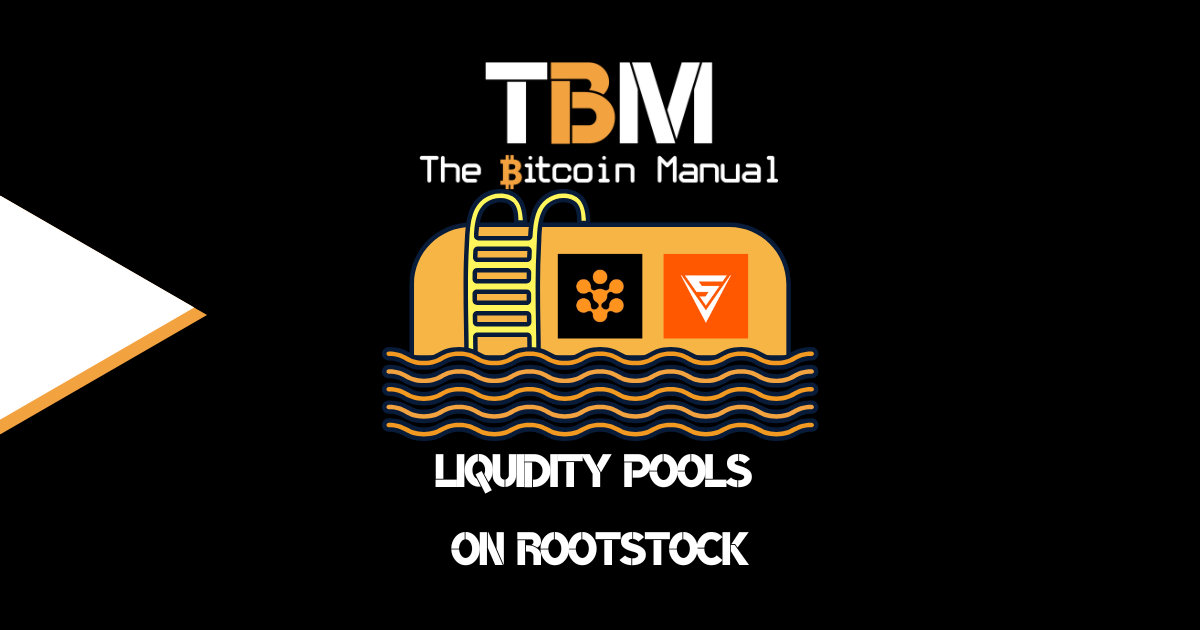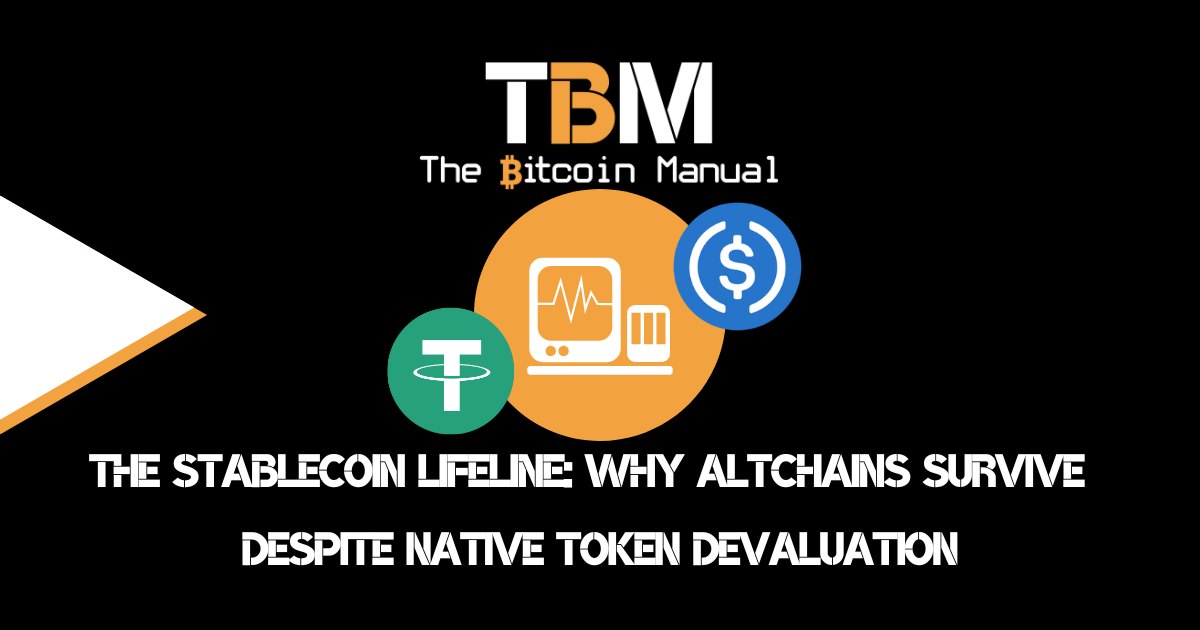Bitcoin is not only about hodling and being self-sovereign as an individual by becoming your own bank; it’s also about building out a circular economy where merchants can deal directly with customers without the need for a bank or payment provider getting involved in rent-seeking off of the transactions of others.
Despite this becoming the norm, even in the bitcoin payment space, the option to manage and process your payments isn’t some substantial technical leap and removing rent-seekers from your business might be better for you overall.
You could reduce fees which can be passed on to discounts to your customers, run smoother operations and offer customers more privacy when making digital payments as well as being censorship-resistant. No matter how you slice it, trusting third parties with money and processing payments are security holes. Still, the convenience and familiarity of established third-party services have made us discount those risks.
However, with bitcoin, you don’t have to take that risk or offer your customers the option of not adding intermediaries in the buying process. Software solutions like BTCPay server allow anyone to option of processing payments using their own node with direct communication with either the Bitcoin blockchain, Liquid Network or the Lightning Network.
What is BTCPay server?
BTCPay Server is a self-hosted, open-source bitcoin payment processor for sovereign businesses and individuals. It enables online merchants to accept bitcoins as a form of payment. The project relies on donations and a network of diverse contributors and users to provide support for numerous use-cases.
BTCPay Server offers a range of benefits for merchants, and it is a powerful tool for driving further adoption of Bitcoin and a circular economy by highlighting its ease of use to brick-and-mortar stores, e-commerce platforms, and other online vendors.
Why would you run a BTCPay server?
Apart from being able to accept and process payments in bitcoin, what does BTCPay server offer those that choose to self-host payment processing?
It’s secure
No middleman means fewer opportunities for security compromises. While the way BTCPay is set up, it has no access to your private keys, nor does it need a custodial wallet to work, but it does offer support for hardware wallets should you wish to add it to your stack.
A self-hosted server also runs on a full node, which provides full verification certainty of Bitcoin transactions as well as operational resilience.
BTCPay also supports Payjoin and Tor. Payjoin makes it more difficult to identify who owns the bitcoin involved in a transaction. Tor is an open-source router for anonymous communication.
It’s free
And isn’t that what we all care about? BTCPay is free to use, and because there are no middlemen, there are no third-party service fees or merchant fees from banks or credit card companies.
It offers privacy
No customer data is shared during BTCPay transactions, it’s an anonymous invoice creation, and it’s just software you’re running on a personal computer or server.
It’s open-source
While setting up your own BTCPay server is technical, it is not difficult. But if you do get stuck or have any problems, there is a whole community of developers and publicly available documentation on GitHub to help you. Since it’s community-driven people are always finding issues bugs and improving the product and creating a host of helpful documentation in the process.
The community also continues to improve the service, including adding new integrations, not to mention you’re getting a top development team to support your payment processing.
It’s scalable
One BTCPay server can theoretically support an infinite number of online stores or crowdfunding sites. The only bottleneck is the hardware you use, but that doesn’t mean you cannot upgrade your self-hosted solution, use a cloud provider or leverage multiple nodes to process payments.
Offers control over payment service features
BTCPay supports invoicing: users can generate and manage invoices with their BTCPay server. Merchants can also process refunds, tipping, patronage, automatic selling, and pull payments such as time-based billing and subscription payments.
Supports Integration and Automation Via Its API
As with any API, functions can be customised, controlled, and automated using BTCPay’s API. It also allows for the integration with a range of payment apps like WooCommerce, the Lightning Network, Shopify, and more.
It’s modelled on the BitPay API and is BitPay-compatible.
Limitations of BTCPay server
BTCPay Server is a powerful tool that gives you a lot of optionalities when conducting bitcoin commerce, but it also has its limitations, namely:
No fiat processing
BTCPay Server does not offer fiat conversion because they emphasise no KYC and AML as the service is focused on privacy and built for non-custodial P2P transactions.
The sunk cost of self-hosting
While setting up a node and running the software requires a dedicated device and some time, that sunk cost can be recouped over time as you process transactions without third-party fees and transition away from services like Visa and Mastercard.
Payment asset limitations
BTCPay Server specifically processes Bitcoin payments so you might be placing a barrier on converting customers and you need to make them aware of the limitations or rather the option to pay with bitcoin. You can accept payments in Bitcoin, L-BTC, LN-BTC and Liquid Assets like L-USDT and L-CAD, so while you can accept stablecoins, The L-USDT option also has its limitations as they are not easily interoperable with USDT from altcoin networks.
This doesn’t mean BTCPay won’t be able to support more fiat processing in the future, with plenty of stablecoin options coming to Lightning.
Do you take self-custody when you process payments?
Now that you know the difference between processing payments via a middleman or using your own tech stack, are you convinced to set up your own BTCPay server? To the consumer, they won’t know the difference, but to you, the receiver, you’re putting risk and reducing fees cost third parties add.
Yes, the initial outlay of setting up a node comes at some cost and some time and requires you to manage your server and maintain uptime, which is why so few choose to run their own server; the convenience of third-party management cannot be discounted.
Previously with banks, you had no option between self-custody or custodial payment processing. If you wanted to run a self-custody business under fiat, you would have to run cash payments-only business, which comes with theft risk when centralising capital in one place, and this would limit your reach of customers.
But with bitcoin now, you can process payments via one or the other. In some cases, you may want to have your BTCPay server as your primary processing service and have the custodial service as a backup should your node be offline for any reason.
Are you a business owner using bitcoin payments?
If you’re new to bitcoin and have not ventured down the reduction of risk and self-custody rabbit hole, what is stopping you? If you’re already self-sovereign, how has the experience been since you took hold of your funds? Let us know in the comments down below; we’re always keen to hear from bitcoiners from around the world.




